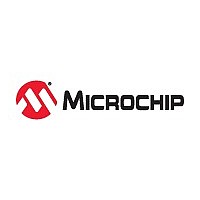PIC16F737-I/SP Microchip Technology Inc., PIC16F737-I/SP Datasheet - Page 50

PIC16F737-I/SP
Manufacturer Part Number
PIC16F737-I/SP
Description
28 PIN, 7 KB FLASH, 368 RAM, 25 I/O
Manufacturer
Microchip Technology Inc.
Datasheet
1.PIC16F737-ISP.pdf
(276 pages)
Specifications of PIC16F737-I/SP
A/d Inputs
5-Channel, 8-Bit
Cpu Speed
5 MIPS
Eeprom Memory
0 Bytes
Input Output
25
Interface
I2C/SPI/USART
Memory Type
Flash
Number Of Bits
8
Package Type
28-pin SPDIP
Programmable Memory
7K Bytes
Ram Size
192 Bytes
Speed
20 MHz
Timers
2-8-bit, 1-16-bit
Voltage, Range
2-5.5 V
Lead Free Status / Rohs Status
RoHS Compliant part
Electrostatic Device
- Current page: 50 of 276
- Download datasheet (6Mb)
PIC16F7X7
4.7.4
Any interrupt, such as WDT or INT0, will cause the part
to leave the Sleep mode.
The SCS bits are unaffected by a SLEEP command and
are the same before and after entering and leaving
Sleep. The clock source used after an exit from Sleep
is determined by the SCS bits.
4.7.4.1
If SCS<1:0> = 00:
1.
2.
3.
DS30498C-page 48
The device is held in Sleep until the CPU start-up
time-out is complete.
If the primary system clock is configured as an
external oscillator (HS, XT, LP), then the OST will
be active waiting for 1024 clocks of the primary
system clock. While waiting for the OST, the
device will be held in Sleep unless Two-Speed
Start-up is enabled. The OST and CPU start-up
timers run in parallel. Refer to Section 15.17.3
“Two-Speed Clock Start-up Mode” for details
on Two-Speed Start-up.
After both the CPU start-up timer and the
Oscillator Start-up Timer have timed out, the
device will exit Sleep and begin instruction
execution with the primary clock defined by the
FOSC bits.
EXITING SLEEP WITH AN
INTERRUPT
Sequence of Events
If SCS<1:0> = 01 or 10:
1.
2.
Note:
The device is held in Sleep until the CPU start-up
time-out is complete.
After the CPU start-up timer has timed out, the
device will exit Sleep and begin instruction
execution with the selected oscillator mode.
If a user changes SCS<1:0> just before
entering Sleep mode, the system clock
used when exiting Sleep mode could be
different than the system clock used when
entering Sleep mode.
As an example, if SCS<1:0> = 01, T1OSC
is the system clock and the following
instructions are executed:
BCF
SLEEP
then a clock change event is executed. If
the primary oscillator is XT, LP or HS, the
core will continue to run off T1OSC and
execute the SLEEP command.
When Sleep is exited, the part will resume
operation with the primary oscillator after
the OST has expired.
2004 Microchip Technology Inc.
OSCCON,SCS0
Related parts for PIC16F737-I/SP
Image
Part Number
Description
Manufacturer
Datasheet
Request
R

Part Number:
Description:
MCU, 8-Bit, 4KW Flash, 368 RAM, 25 I/O, SOIC-28
Manufacturer:
Microchip Technology Inc.
Datasheet:

Part Number:
Description:
Manufacturer:
Microchip Technology Inc.
Datasheet:

Part Number:
Description:
28 PIN, 7 KB FLASH, 192 RAM, 22 I/O
Manufacturer:
Microchip Technology Inc.
Datasheet:

Part Number:
Description:
28 PIN, 7 KB FLASH, 192 RAM, 22 I/O
Manufacturer:
Microchip Technology Inc.
Datasheet:

Part Number:
Description:
IC, 8BIT MCU, PIC16F, 32MHZ, SOIC-18
Manufacturer:
Microchip Technology
Datasheet:

Part Number:
Description:
IC, 8BIT MCU, PIC16F, 32MHZ, SSOP-20
Manufacturer:
Microchip Technology
Datasheet:

Part Number:
Description:
IC, 8BIT MCU, PIC16F, 32MHZ, DIP-18
Manufacturer:
Microchip Technology
Datasheet:

Part Number:
Description:
IC, 8BIT MCU, PIC16F, 32MHZ, QFN-28
Manufacturer:
Microchip Technology
Datasheet:

Part Number:
Description:
IC, 8BIT MCU, PIC16F, 32MHZ, QFN-28
Manufacturer:
Microchip Technology
Datasheet:

Part Number:
Description:
IC, 8BIT MCU, PIC16F, 32MHZ, QFN-28
Manufacturer:
Microchip Technology
Datasheet:

Part Number:
Description:
IC, 8BIT MCU, PIC16F, 32MHZ, SSOP-20
Manufacturer:
Microchip Technology
Datasheet:

Part Number:
Description:
IC, 8BIT MCU, PIC16F, 20MHZ, DIP-40
Manufacturer:
Microchip Technology
Datasheet:

Part Number:
Description:
IC, 8BIT MCU, PIC16F, 32MHZ, QFN-28
Manufacturer:
Microchip Technology
Datasheet:

Part Number:
Description:
IC, 8BIT MCU, PIC16F, 20MHZ, MQFP-44
Manufacturer:
Microchip Technology
Datasheet:

Part Number:
Description:
IC, 8BIT MCU, PIC16F, 20MHZ, QFN-20
Manufacturer:
Microchip Technology
Datasheet:










